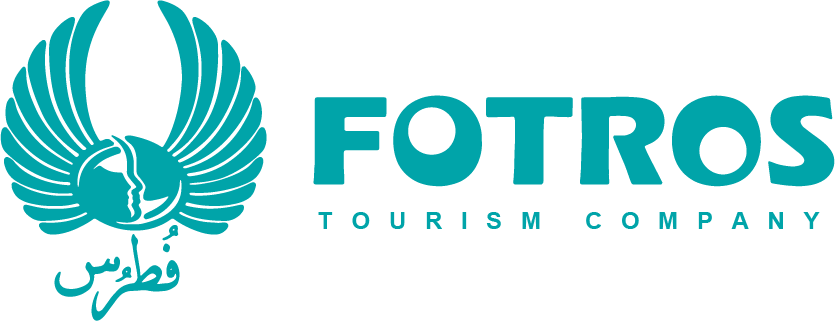
Medical Surgeries
Hysterectomy


A hysterectomy is a surgical procedure in which the uterus is removed from a person's body. The uterus is a female reproductive organ where a fertilized egg can implant and grow during pregnancy. Hysterectomies are often performed for various medical reasons, including:
Uterine fibroids: These are noncancerous growths in the uterus that can cause pain, heavy menstrual bleeding, and other symptoms.
Endometriosis: This is a condition in which tissue similar to the lining of the uterus grows outside the uterus, leading to pain and other symptoms.
Uterine prolapse: This occurs when the uterus descends into the vaginal canal due to weakened pelvic muscles.
Abnormal uterine bleeding: Conditions like menorrhagia (excessive menstrual bleeding) or metrorrhagia (irregular uterine bleeding) that do not respond to other treatments may warrant a hysterectomy.
Gynecologic cancers: In cases of uterine, cervical, or ovarian cancer, a hysterectomy may be part of the treatment plan.
Chronic pelvic pain: Some individuals with chronic pelvic pain that doesn't respond to other treatments may opt for a hysterectomy as a last resort.
There are different types of hysterectomy, including:
Total hysterectomy: This involves the removal of the entire uterus, including the cervix.
Partial or subtotal hysterectomy:
In this procedure, only a portion of the uterus is removed, typically leaving the cervix intact.
Radical hysterectomy: This is a more extensive surgery often used to treat gynecologic cancers. It involves the removal of the uterus, cervix, upper part of the vagina, and sometimes nearby lymph nodes and tissues.
Hysterectomies can be performed through various surgical methods, including open abdominal surgery, laparoscopic (minimally invasive) surgery, or robotic-assisted surgery, depending on the individual's condition and the surgeon's expertise.


Notice:
It's important to note that a hysterectomy is a major surgical procedure and has both physical and emotional implications. It may result in the loss of fertility and can lead to menopause if the ovaries are also removed during the procedure. Therefore, it is a decision that should be carefully considered in consultation with a healthcare provider, taking into account the individual's specific medical condition and personal preferences.


Before Hysterectomy:
Consultation and Preoperative Planning:
• Meet with your gynecologist or surgeon to discuss the reasons for the hysterectomy, the type of hysterectomy (total, partial, or radical), and the expected outcomes.
• Discuss any concerns or questions you may have.
Preoperative Tests:
• Your healthcare provider may order blood tests, imaging, and other preoperative tests to assess your overall health and rule out any underlying medical conditions.
Medication Review:
• Review your current medications with your healthcare provider, as you may need to adjust or discontinue certain medications before the surgery.
Lifestyle Adjustments:
• Maintain a healthy lifestyle by eating well, staying hydrated, and getting regular exercise.
• Avoid smoking and limit alcohol consumption.
Preoperative Instructions:
• Your healthcare provider will provide specific instructions regarding fasting before the surgery and any necessary bowel preparations.
After Hysterectomy:
Recovery from a hysterectomy can vary depending on the type of surgery, individual factors, and the reason for the procedure. Here are some general guidelines for post-hysterectomy care:
Pain Management: You will likely experience pain and discomfort after the surgery. Your healthcare provider will prescribe pain medications to manage this.
Incision Care: Keep the incision site clean and dry. Follow your healthcare provider's instructions for wound care. If your surgery was done laparoscopically, you may have smaller incisions that require less care.
Activity and Rest: Initially, you'll need to rest and limit physical activity. Gradually, you can increase your activity level as your surgeon recommends. Avoid heavy lifting or strenuous exercise for the first few weeks.
Diet and Hydration: Eat a balanced diet to support healing and avoid constipation. High-fiber foods can help prevent postoperative constipation. Stay well-hydrated.


Follow-up Appointments: Attend all scheduled follow-up appointments with your healthcare provider to monitor your recovery and discuss any concerns.
Hormone Replacement Therapy (if applicable): If your ovaries were removed during the hysterectomy, your healthcare provider may discuss hormone replacement therapy to manage menopausal symptoms.
Emotional Support: Reach out to friends and family for emotional support during your recovery. If you experience emotional or psychological challenges, consider counseling or support groups.


Success rate:
The success rate of a hysterectomy can vary depending on the reason for the procedure and the individual patient's circumstances. Hysterectomy is a surgical procedure in which the uterus is removed, and it can be performed for various medical reasons, including:
Uterine fibroids, Endometriosis, Uterine prolapse, Abnormal uterine bleeding, Gynecological cancers (such as cervical, uterine, or ovarian cancer)
The success of a hysterectomy is typically measured by the relief of symptoms and the absence of complications after the procedure. In many cases, a hysterectomy can effectively treat the underlying medical condition and provide significant symptom relief. However, it's important to note that a hysterectomy is a major surgery and may have associated risks and potential complications, like any surgical procedure.
Why Iran:
Hysterectomy is a surgical procedure in which the uterus is removed. This procedure is typically recommended for various medical reasons, and the decision to perform a hysterectomy is made based on a patient's specific medical condition and needs, rather than their nationality or ethnicity. Some common medical reasons for recommending a hysterectomy include:
Uterine fibroids: Large or numerous fibroids in the uterus can cause symptoms like heavy menstrual bleeding, pelvic pain, and pressure. In cases where other treatments have failed, a hysterectomy may be recommended.
Endometriosis: Severe endometriosis can cause chronic pelvic pain and other symptoms. When conservative treatments are ineffective, a hysterectomy may be considered as a last resort.


Uterine prolapse: When the uterus drops from its normal position into the vaginal canal, it can lead to various symptoms like pelvic pressure, urinary incontinence, and discomfort. In severe cases, a hysterectomy may be necessary to address this condition.
Uterine cancer or precancerous conditions: If a woman is diagnosed with uterine cancer or has precancerous changes in the uterine lining, a hysterectomy may be recommended as a treatment option.
Chronic pelvic pain: In some cases, chronic pelvic pain that does not respond to other treatments may lead to a recommendation for a hysterectomy to alleviate the pain.
Adenomyosis: Adenomyosis is a condition where the tissue lining the uterus grows into the uterine wall, causing pain and heavy bleeding. In cases of severe symptoms, a hysterectomy may be advised.


Our services include:
![]() our online services include: quotes and consultation
our online services include: quotes and consultation
![]() Planning the highest word-level medical trips and quality hospitals and medical centers according to the patient's request and budget.
Planning the highest word-level medical trips and quality hospitals and medical centers according to the patient's request and budget.
![]() Appointing treatments by the most skilled and experienced doctors.
Appointing treatments by the most skilled and experienced doctors.
![]() Airport pick-up/drop off, check-ups, accompanying translator, book hotel (for patients and their families)
Airport pick-up/drop off, check-ups, accompanying translator, book hotel (for patients and their families)
![]() Pre-hospitalization / post-hospitalization care services
Pre-hospitalization / post-hospitalization care services
All-Inclusive Medical Travel Packages
based on your budget, our team will assist you in choosing the best hotels, doctors, and medical centers. Our packages include:
 Airport Pickup Services
Airport Pickup Services Airport Dropoff services
Airport Dropoff services Hotel
Hotel Ticket
Ticket visa
visa translator
translator Transfer
Transfer SIM Card
SIM Card Sightseeing
Sightseeing


 why Iran
why Iran
Patients may choose to have abdominoplasty (commonly known as a tummy tuck) in Iran for a variety of reasons
Cost, Quality of Care, Privacy and Discretion, Combined Tourism, no Waiting Times
![]()
Fotros is an Iranian health tourism company with a professional team consisting of a support team and word-level doctors in medical and cosmetic surgeries like Neurosurgery, Rhinoplasty, Breast cosmetic surgeries, Liposuction, tummy tuck, etc.










 why Iran
why Iran